Choice 1: Medical And Health Care Clinics
Struggling with medical bills? Discover essential resources offering free or low-cost healthcare services tailored just for you. Ensure you and your loved ones get the care you deserve without financial stress. Dive in to learn more!
Free or low-cost medical clinics, backed by charitable organizations and community initiatives, play a pivotal role in ensuring healthcare remains accessible to everyone, regardless of their financial standing. Most free or income based clinics or health care centers are non-profits and offer drive thru services. They operate as part of the Federally Qualified Health Center (FQHC) or Rural Health Clinics (RHC) program. They are focused on providing either free or low cost medical care to low income patients, disabled people, families on Medicaid, seniors and people of all income levels.
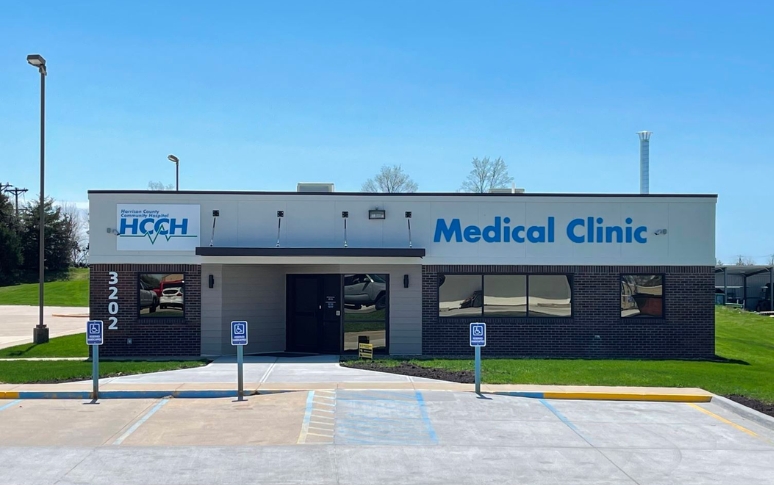
What services do medical and health care clinics provide?
- Eye exam or glasses.
- Check ups or physicals, including for kids and sports.
- A critical prescription drug, including for ADHD, anxiety, or cholesterol.
- Diabetic strip, insulin or countless other healthcare services for low-income patients who are diabetic.
- Immunization shots or vaccinations, including for Flu, Shingles and more.
- Free health centers offer telemedicine or remote health consultation from doctors or nurses.
- While not as common, some free or cheap health care centers offer emergency or ambulatory care too.
- Dermatology and skin exams including free skin cancer checks.
- OB/GYN and free clinic for women.
- Free behavioral health, therapy, online or in-person counseling and similar care.
- Cancer screening or testing, including colon, mammograms, cervical or prostate testing.
- Free Ear-Nose-Throat care for kids, newborns and infants.
- Health checks at clinics near you including STD testing, medical for people with HIV or AIDS, Hepatitis C Testing, and pregnancy exams.

How can I apply for health care assistance, and is it free?
These clinics are strategically spread across states and regions. While many derive funding from charitable organizations or government grants, all primarily focus on serving their respective communities. A detailed list of available clinics can be accessed state-wise, ensuring everyone finds a facility nearby.
A majority of these clinics offer their services for free. Others might work on an income-based sliding fee scale. The essence remains - to make healthcare affordable, and often free, for those under financial constraints.
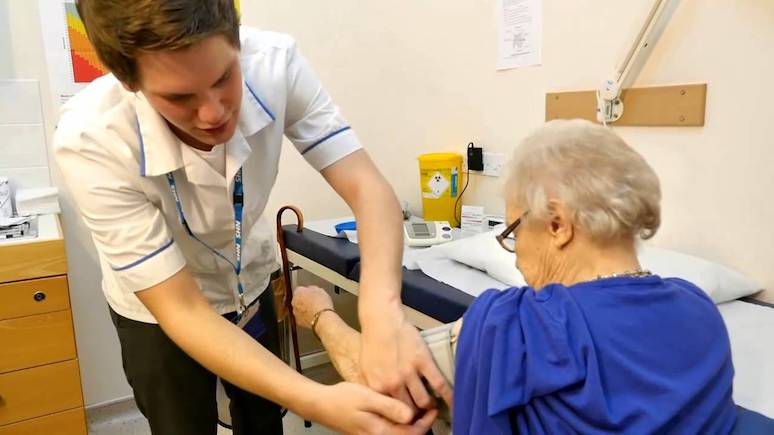
Choice 2: Dental Clinics
Many of the patients (adults, seniors or children) may not have access to proper care due to lack of a health insurance plan or funds. Recognizing the crucial importance of oral health, a host of dental clinics are now stepping forward, offering their expertise at highly subsidized rates or often free of charge, especially catering to low-income individuals.
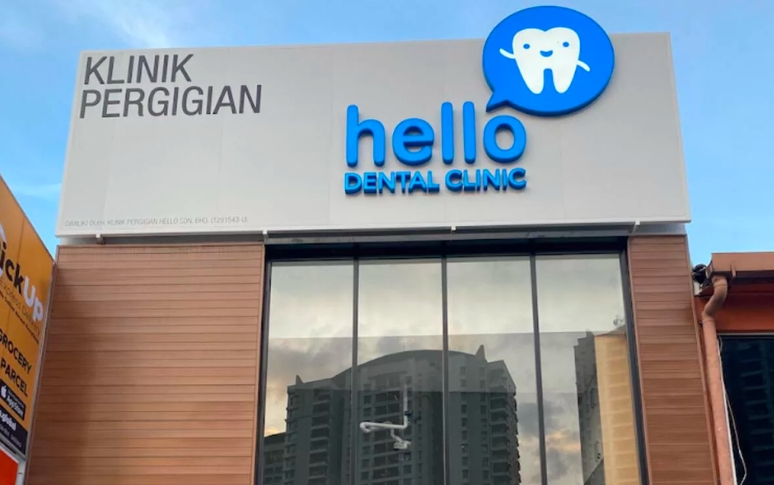
What services do dental clinics provide?
- Routine dental cleanings and check-ups.
- Emergency procedures such as extractions and root canals.
- Advanced dental treatments and consultations.
- Programs specifically designed for children and senior citizens.
Routine dental cleanings and check-ups: These clinics provide thorough dental cleaning and regular check-ups, ensuring the oral health of patients is consistently monitored. Scheduled appointments are encouraged to streamline the process.
Emergency procedures such as extractions and root canals: Immediate care for painful or dangerous dental issues is provided, with professionals on standby to handle emergency extractions and root canals, ensuring patient well-being.
Advanced dental treatments and consultations: For specific dental concerns, clinics offer advanced treatments and consultations. Patients benefit from the insights and guidance of specialized dental professionals.
Programs specifically designed for children and senior citizens: With a focus on age-specific needs, these clinics have tailored programs to cater to both children and the elderly, ensuring everyone receives optimal care.
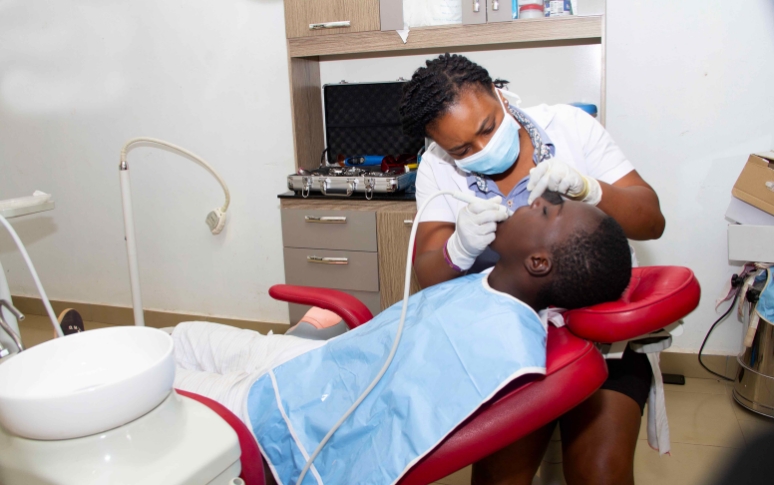
How can I apply for dental care and is it free?
- Online directories and websites.
- Community centers and libraries.
- Referrals.
- Phone applications.
Online directories and websites: Most counties or regions have official dental department websites which list out all the licensed clinics, including those offering subsidized or free services. Websites such as the National Association of Free & Charitable Clinics (NAFC) offer comprehensive directories where you can search for clinics based on location and services.
Community centers and libraries: These establishments often have information on local dental clinics and can guide you on how to apply or make an appointment. Periodically, they also host health fairs where multiple medical and dental service providers set up booths. These events are great opportunities to understand the breadth of services offered, meet the professionals in person, and even receive on-the-spot consultations.
Referrals: Often, general practitioners, pediatricians, or other healthcare professionals are aware of local dental clinics and can provide referrals. If you've visited a hospital or another medical clinic, ask them if they can recommend a dental service that fits your needs.
Phone applications: Many clinics now have dedicated helplines or customer service numbers. A simple phone call can provide information on available services, required documentation, and appointment scheduling.
While many clinics provide dental care for free, some might charge a nominal fee, determined using a sliding scale based on one's income. The central ethos is to ensure quality dental care remains accessible and affordable for all. It is suggested to explain your financial situation explicitly and ask directly for a medical fee waiver.
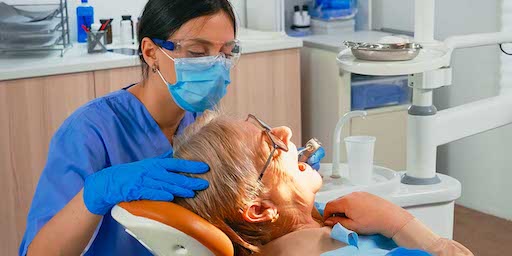
Choice 3: HRSA
Health Resources and Services Administration (HRSA) is a federal government agency that is part of the U.S. Department of Health and Human Services. HRSA stands as a beacon of hope for many, serving as the primary federal agency committed to enhancing healthcare accessibility, especially for the uninsured, underinsured, and those financially constrained.
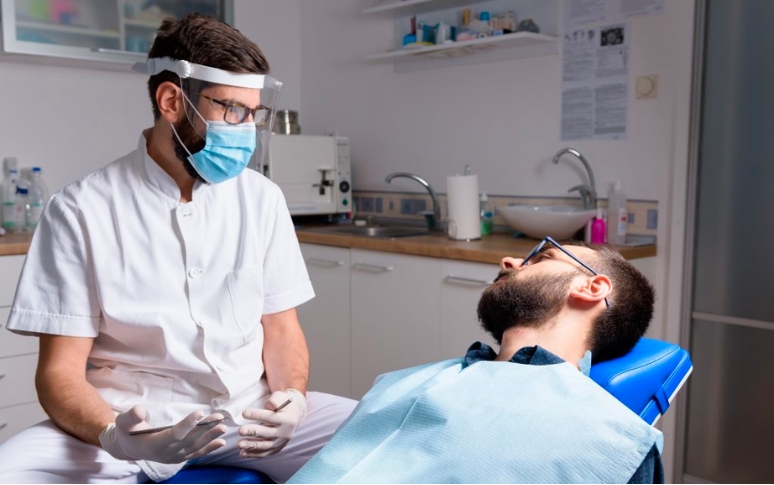
What services does HRSA provide?
- Free health insurance.
- Regular health check-ups.
- Comprehensive dental care.
- Vision care to specific groups.
- Mental health and counseling services
- Prescribed medications for various conditions.
- Mental health care and substance abuse treatments.
- VA Medical Care Hardship program.
Free health insurance: HRSA offers health insurance programs that alleviate the costs associated with medical treatments and consultations, ensuring that everyone has access to essential health services without the worry of financial barriers.
Regular health check-ups: Emphasizing preventive care, HRSA facilitates regular health check-ups. These sessions play a crucial role in early disease detection and management, promoting long-term health.
Comprehensive dental care: Recognizing the importance of oral health, HRSA ensures individuals have access to detailed dental examinations and treatments, catering to a range of dental concerns.
Vision care for specific groups: Catering to groups with unique needs, HRSA provides vision care, ensuring optimal eye health and addressing vision-related concerns.
Mental health and counseling services: Acknowledging the importance of mental well-being, HRSA offers counseling and mental health services, creating a support network for individuals in need.
Prescribed medications for various conditions: Ensuring that financial constraints don't hinder medication access, HRSA provides prescribed medications, catering to a multitude of health conditions.
Mental health care and substance abuse treatments: Addressing the broader spectrum of mental health, HRSA also offers treatments for substance abuse, providing a holistic approach to mental well-being.
VA Medical Care Hardship program: Collaborating with other federal programs, HRSA offers the VA Medical Care Hardship program, targeting veterans in need, ensuring they receive the care they deserve.

Where and how can I apply for HRSA, and how much does it cost?
Engage directly with the HRSA for referrals. They maintain an extensive network, liaising with local community clinics across the nation. To delve deeper into services and affiliated clinics, reach out to local government agencies or directly dial the HRSA customer service number at 888-275-4772.
Many affiliated health centers offer completely free healthcare. However, some might adjust their prices based on one's income, often referred to as a sliding fee scale. This ensures services remain affordable, irrespective of one's economic status.
In wrapping up, the emphasis remains clear: Quality healthcare should not remain a luxury, reserved only for those who can afford it. The resources highlighted above strive to ensure that every individual, particularly those facing financial challenges, can access the medical care they deserve without being burdened by costs. These platforms play a pivotal role in promoting community health and well-being.

Was this page helpful? Give us a thumbs up!












